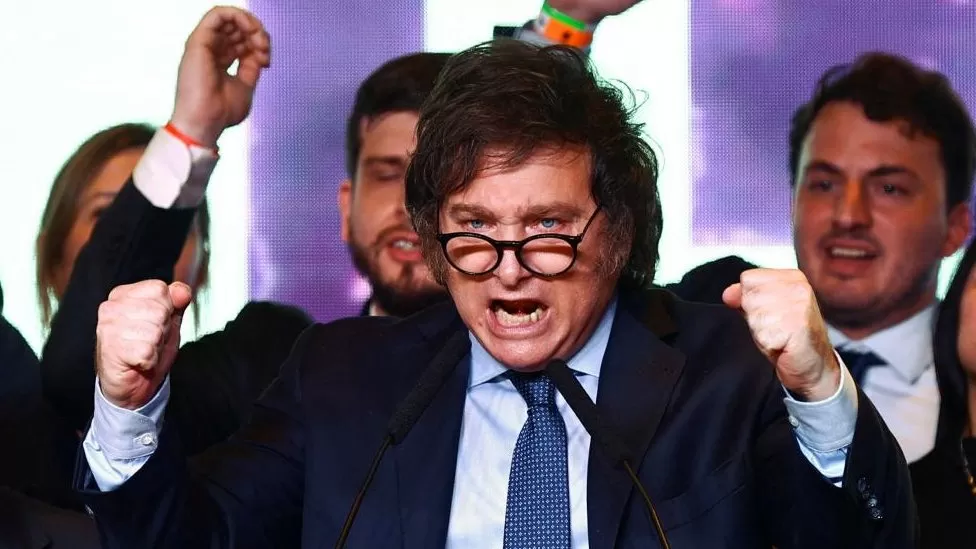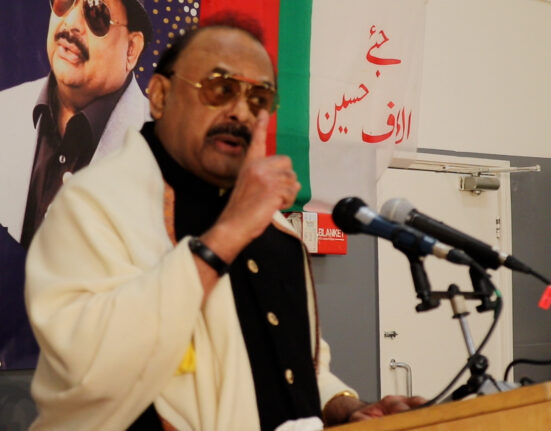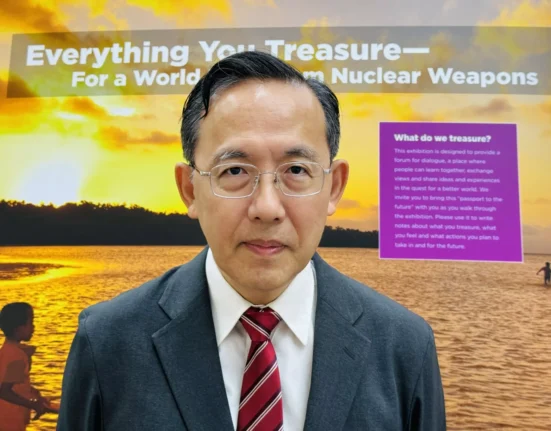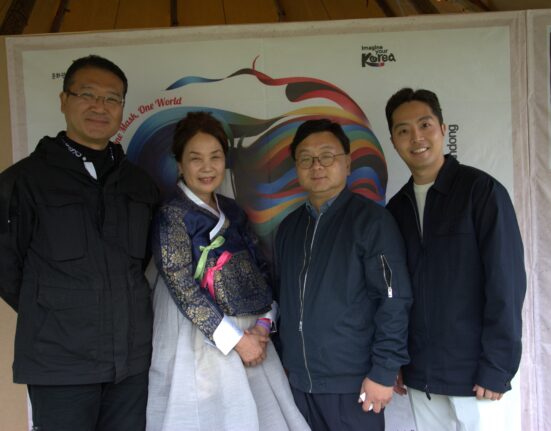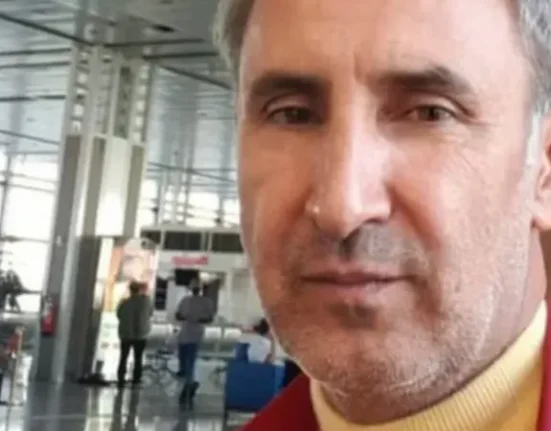Javier Milei’s victory sends a clear message – Argentines wanted change and he was the candidate most likely to deliver it.
His rise to the top was swift. A former economist and pundit, Mr Milei was relatively unknown before winning the primaries back in August.
But his brash manner, radical campaign proposals, as well as his unruly hairstyle, got him noticed.
In a country mired in economic crisis, where annual inflation is now over 140% and two in five Argentines now live in poverty, a drastic new approach to fixing the problems was a clever move.
Many presidents before him have tried, and failed, to improve the situation so there was nothing to lose by promising something very different.
The challenge will be how he navigates a country in crisis away from campaign promises and deals with reality – trying to improve the situation for millions of Argentines, not make it worse.
So will Argentina see the Mr Milei who has promised to destroy the central bank, slash government spending and introduce the US dollar as Argentina’s official currency?
Or will there be a toned-down version of Mr Milei waiting in the wings?
“Perhaps he’ll moderate his agenda to build public support and win over lawmakers from other parties. Otherwise, expect political gridlock, social uproar, and revolts by unions,” says Benjamin Gedan, who heads the Argentina Project at the Wilson Center global affairs think tank.
“Many of Milei’s supporters voted against their economic interests. Should he dismiss a significant number of government workers, slash social welfare programs, and dramatically increase the price of water, electricity, natural gas, and public transportation, there will be a serious case of buyer’s remorse with very real implications for governability.”
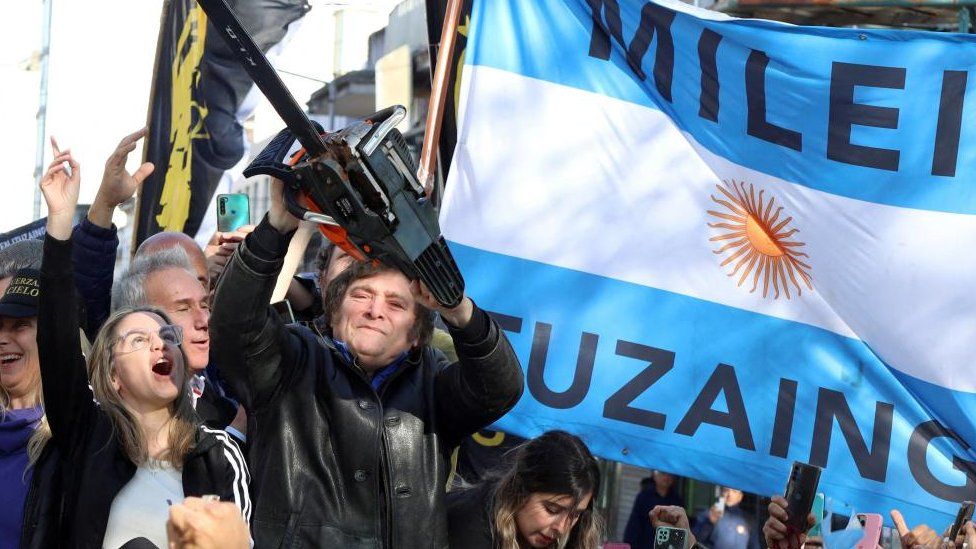
Mr Milei’s victory is being seen as a victory for the far-right beyond Argentina.
Former Brazilian President Jair Bolsonaro’s team travelled to Buenos Aires to support him and Spain’s Vox party has also backed him. But, say experts, his win is more than just about politics.
“Javier Milei’s voters are more connected to the economic and the political discontent rather than to purely an ideological ‘anarcho-capitalist’ or ‘anarcho-libertarian’ far-right base,” says Juan Cruz Díaz, managing director at the Cefeidas Group in Buenos Aires.
“I think what explains Milei’s victory is mostly connected with the economy and the economic challenges Argentina is facing right now.”
And it is not just the economy that Mr Milei wants to shake up. He has also pledged to loosen gun laws and ban abortion – this in a country which in 2020 legalised abortion and helped improve sexual and reproductive health rights for women across what has traditionally been a very conservative region.
Mr Milei has also criticised China and Brazil, saying he does not do business with “communists”. The two countries are Argentina’s biggest trading partners.
In the wake of his victory, Brazil’s President Lula da Silva stopped short of congratulating Mr Milei personally, instead offering his congratulations to the institutions which carried out the electoral process.
“Democracy is the voice of the people and that must always be respected,” Lula said on X.
That sentence is likely both a diplomatic nod to the election results and a subtle dig at Mr Milei.
He and his vice-president, Victoria Villarruel, have repeatedly been accused of lacking respect for democracy and calling into question the official number of victims during Argentina’s military dictatorship between 1976 and 1983.
All told, Mr Milei’s victory is a departure for a country with a traditional scene – a scene so often dominated by the Peronist political movement.
Instead, there is a new kind of politics forming – one led by a politician often compared to former US President Donald Trump and Brazil’s ex-leader Jair Bolsonaro.
So yes, Argentines wanted change and Javier Milei said he would deliver it – but what that change will look like is anyone’s guess for now.
The only thing that is clear is that it will be unlike anything that has come before.

